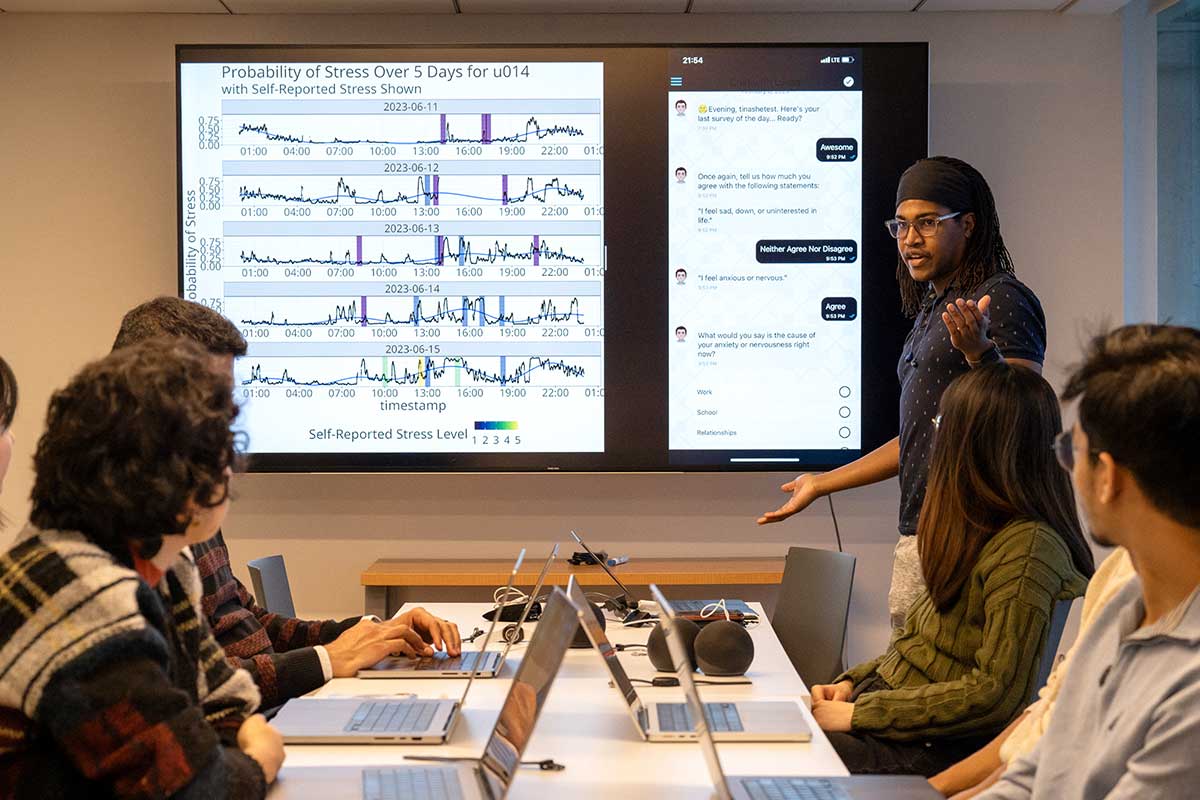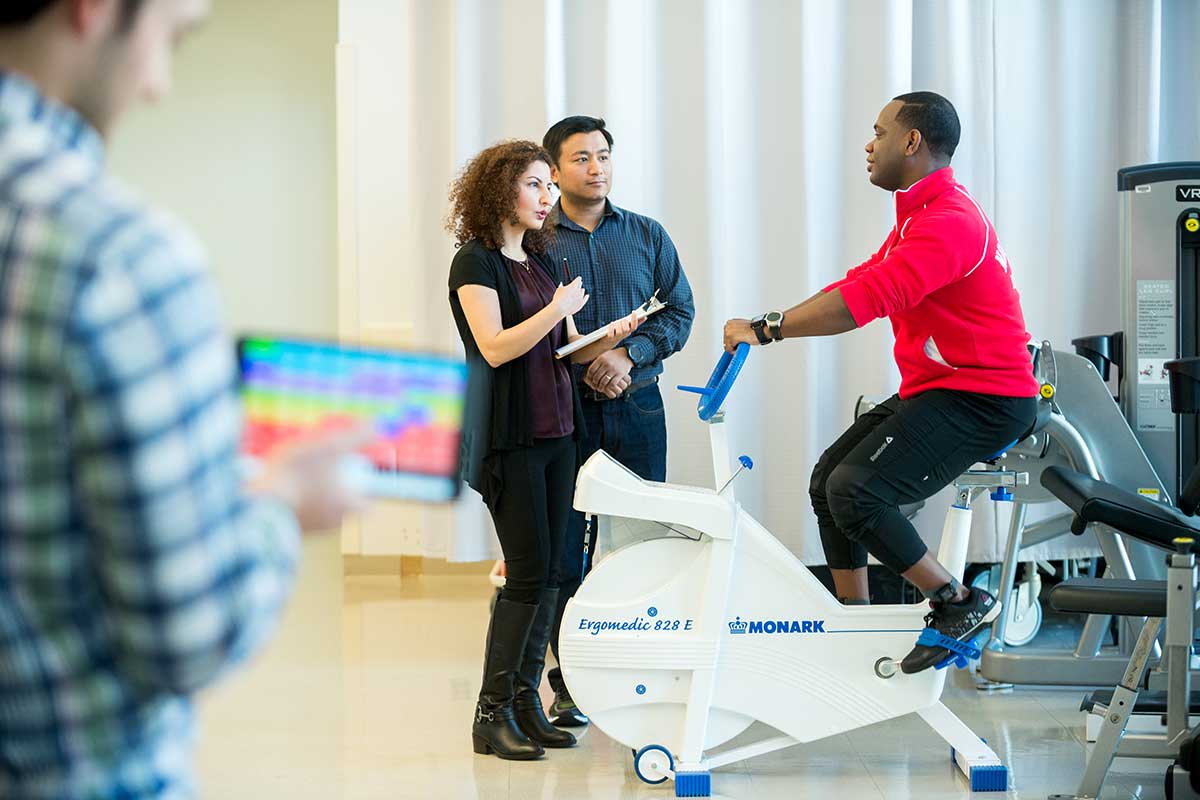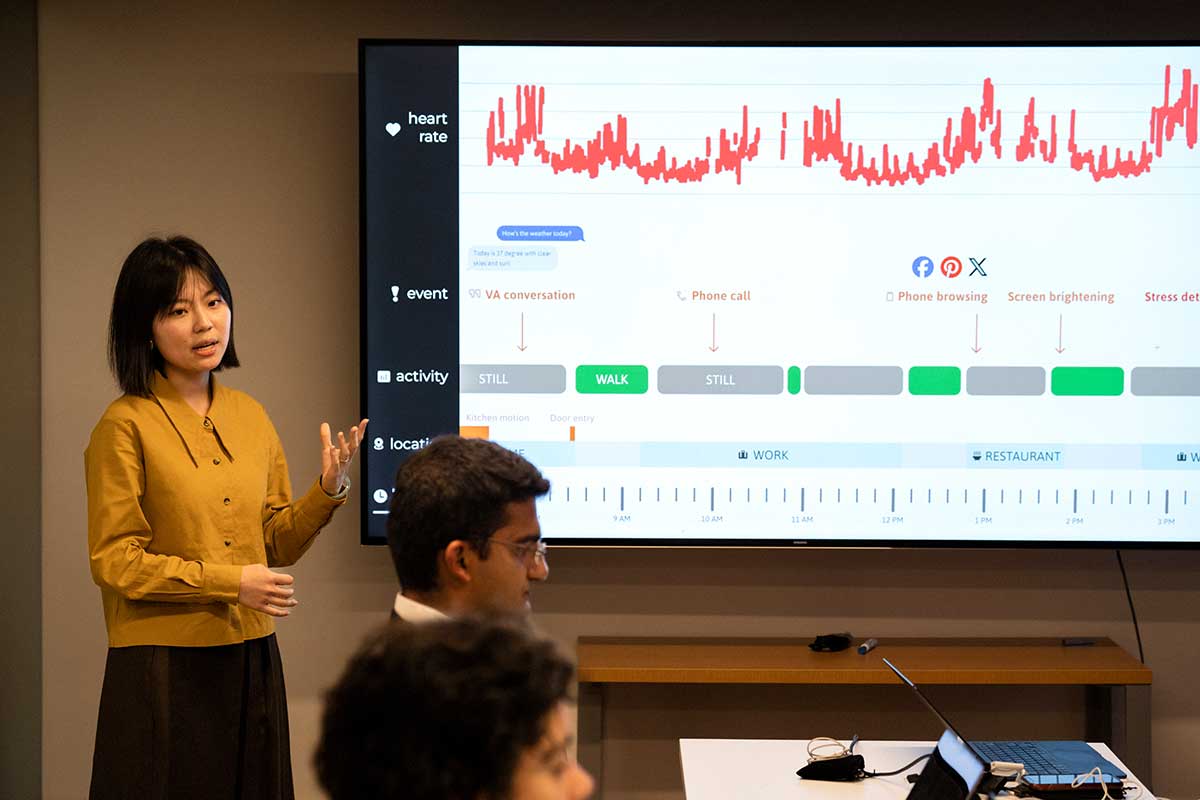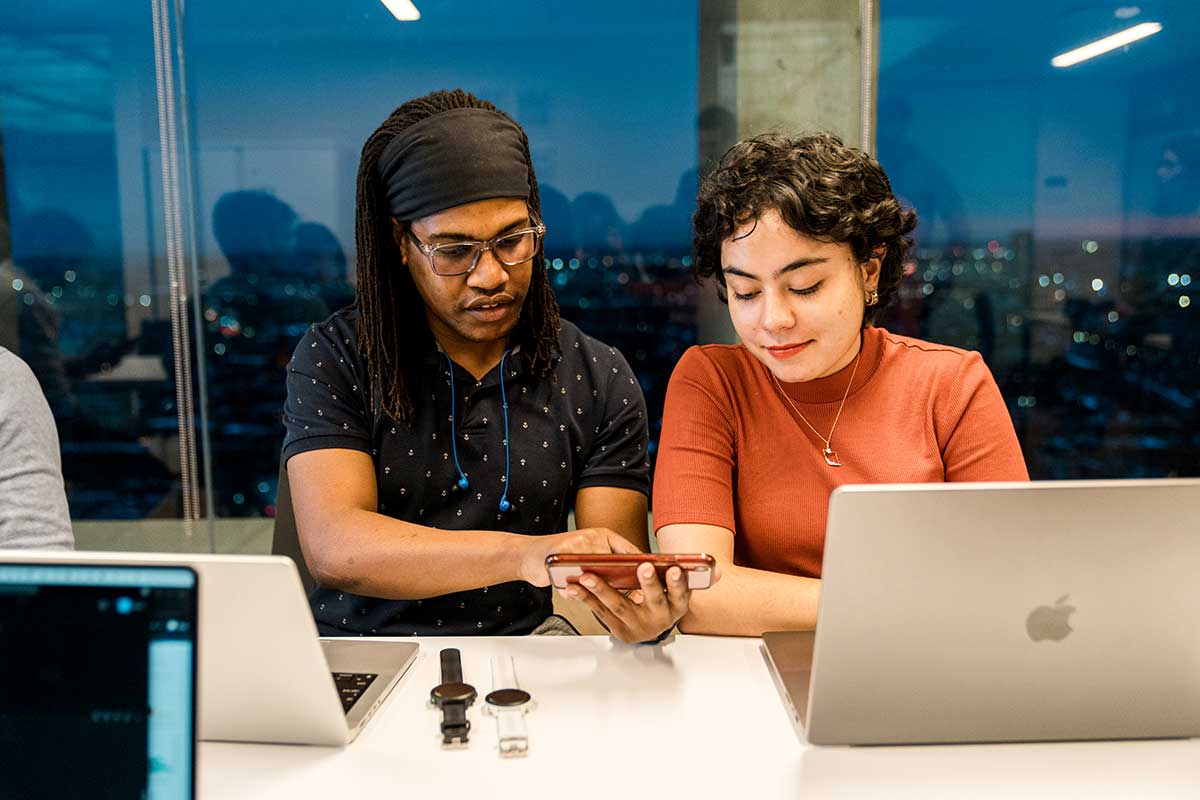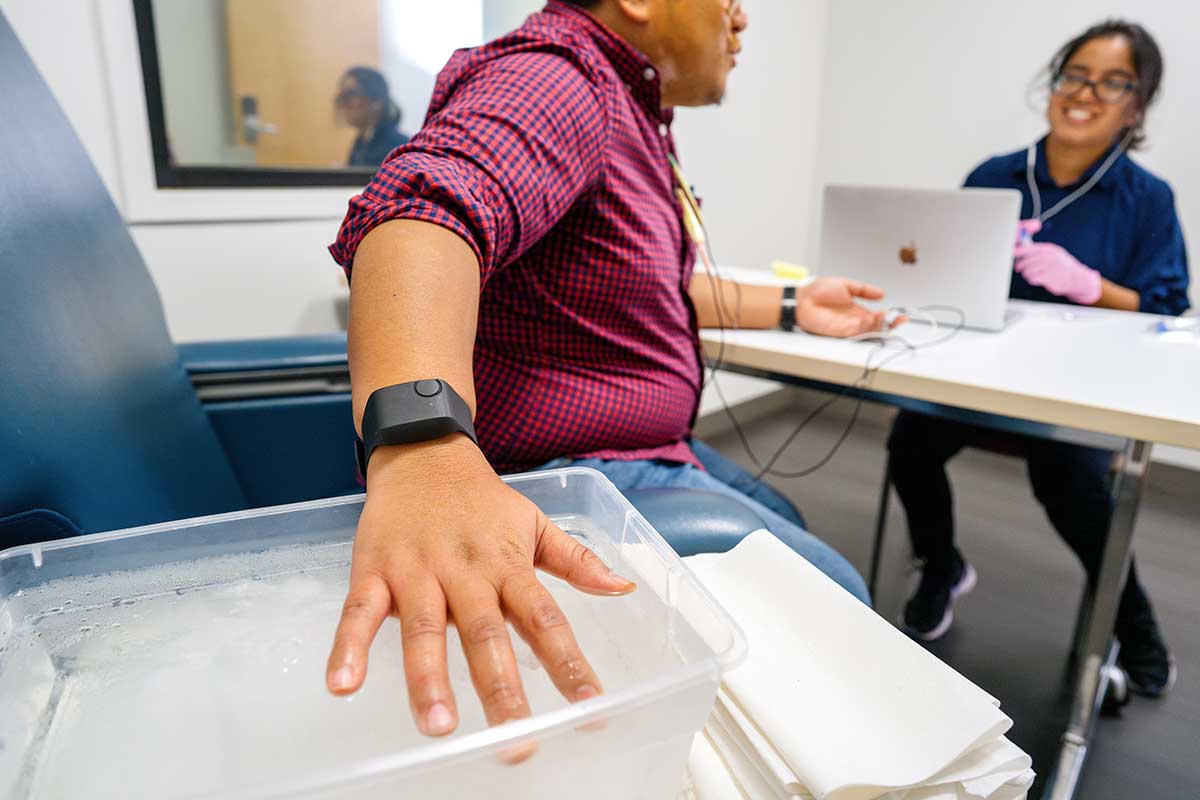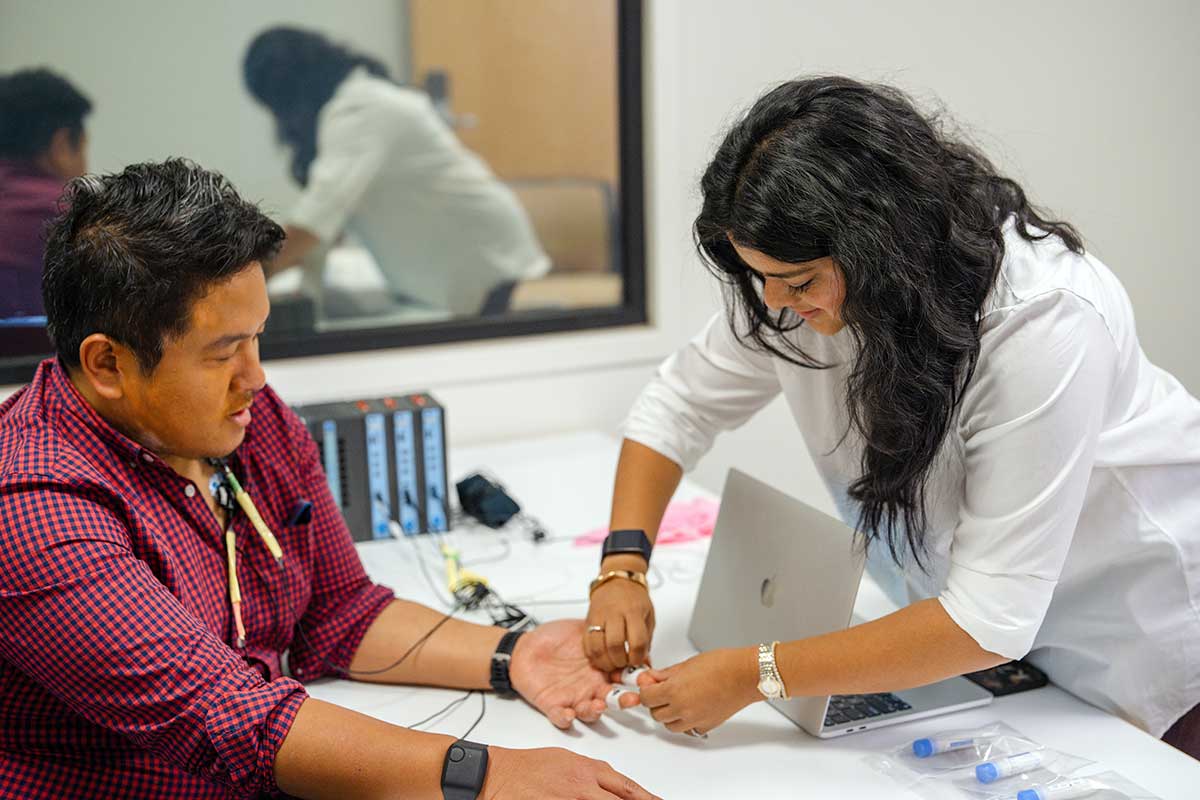
Personal Health Informatics at Khoury College of Computer Sciences
Defining the future by building technology tools to help people and communities stay healthy across the lifespan
Computer technology has vast potential to help people understand their health and to make and sustain changes that improve their well-being throughout their life. With the nation’s only PhD program in Personal Health Informatics (a joint program with Northeastern’s Bouvé College of Health Sciences), Khoury College faculty and graduate students are conducting breakthrough research in areas ranging from mobile health application design, the use of virtual agents to provide behavioral health coaching, and enhancing fitness tracking effectiveness by incorporating storytelling. With an interdisciplinary approach and applied research projects in communities nationwide, Khoury College is inventing the future of how we all stay healthy.
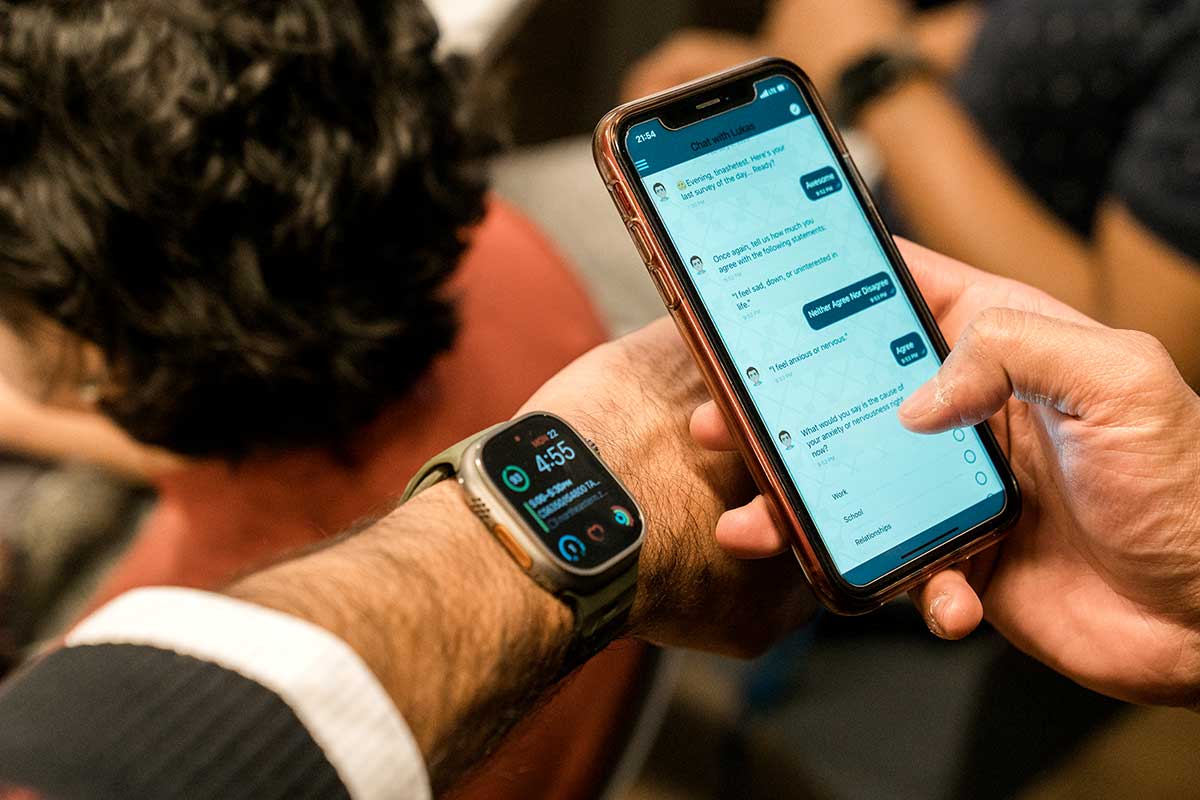
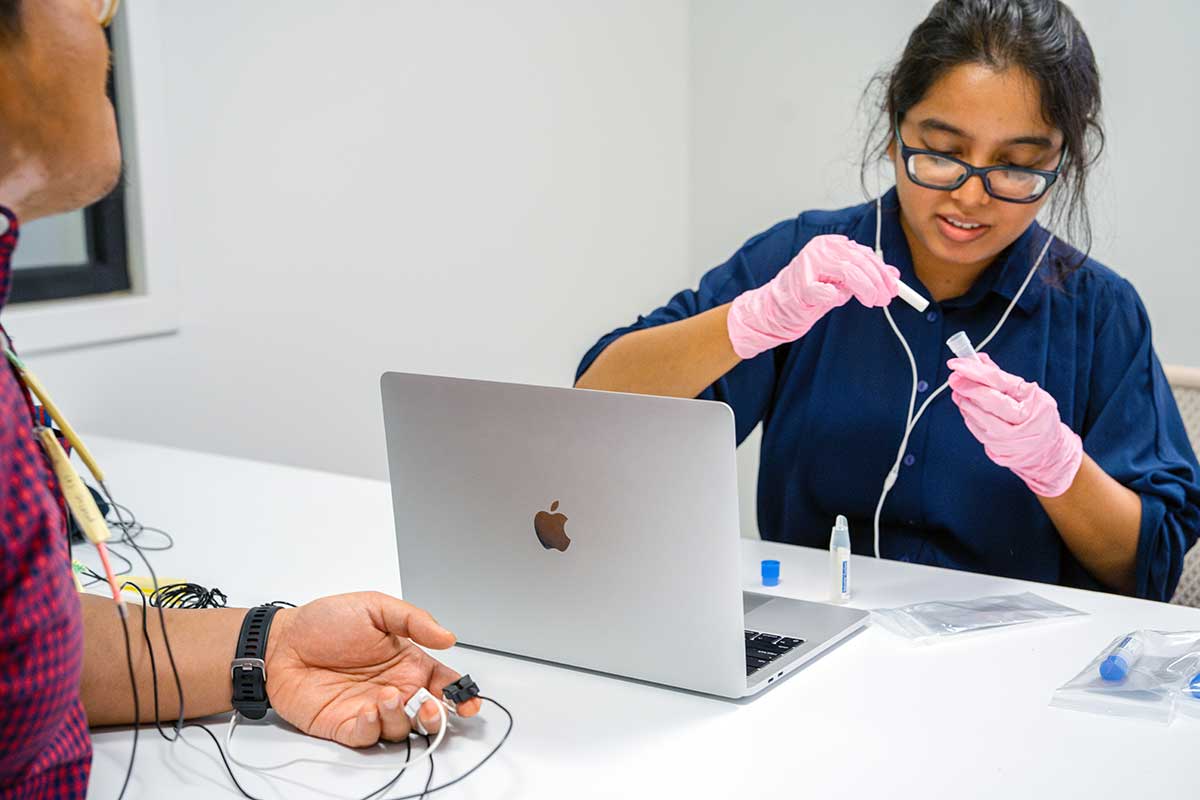
Making a difference in everyday life
Personal Health Informatics and Data Visualization investigators at Khoury College are working to build interactive tools to help people with Type 1 diabetes (an estimated 1.5 million Americans) and their providers understand daily patterns that could help them fine-tune and customize their insulin use and other aspects of disease management.
Among their many research endeavors, Khoury researchers are studying how virtual agents, such as computerized health and fitness coaches, can help people comply with medications, fitness plans, and diet, as well as monitor their physical and mental health: tapping technology to learn what works for them and to build habits they can sustain.
Sample research areas
- Mobile and wearable health devices and systems (mHealth)
- Health counseling dialogue systems
- Assistive health technologies, with special emphasis on underserved populations
- Visualization tools for adjusting diabetes treatment protocols
- New scientific tools for measuring health-related behavior during everyday life
- Robotic health assistants
- Human-centered computing to support aging in place
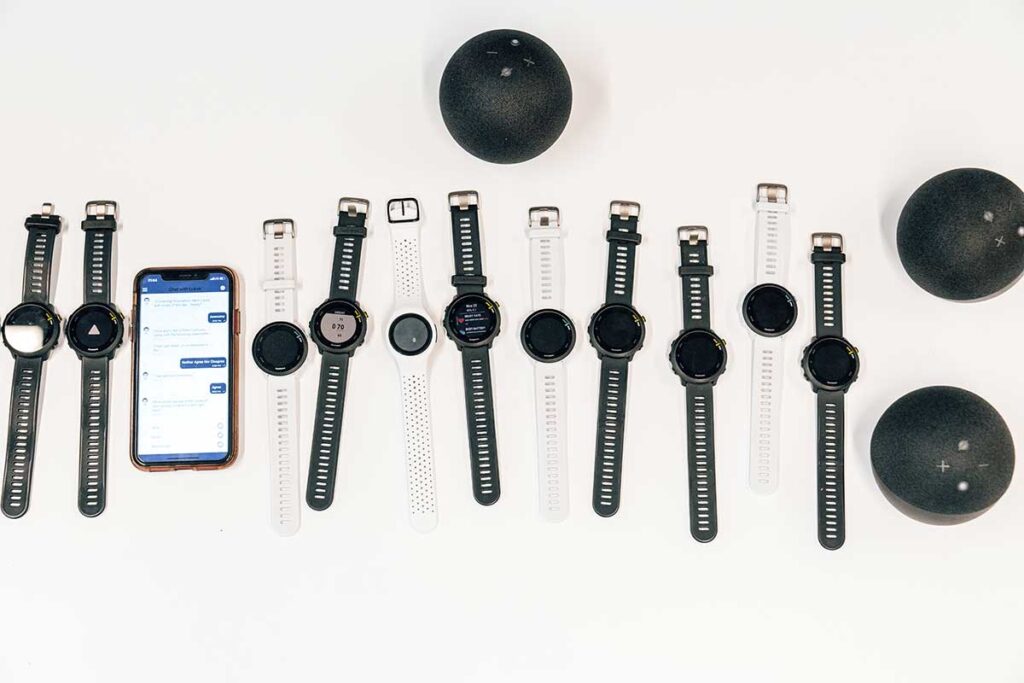
Khoury researchers: At the forefront
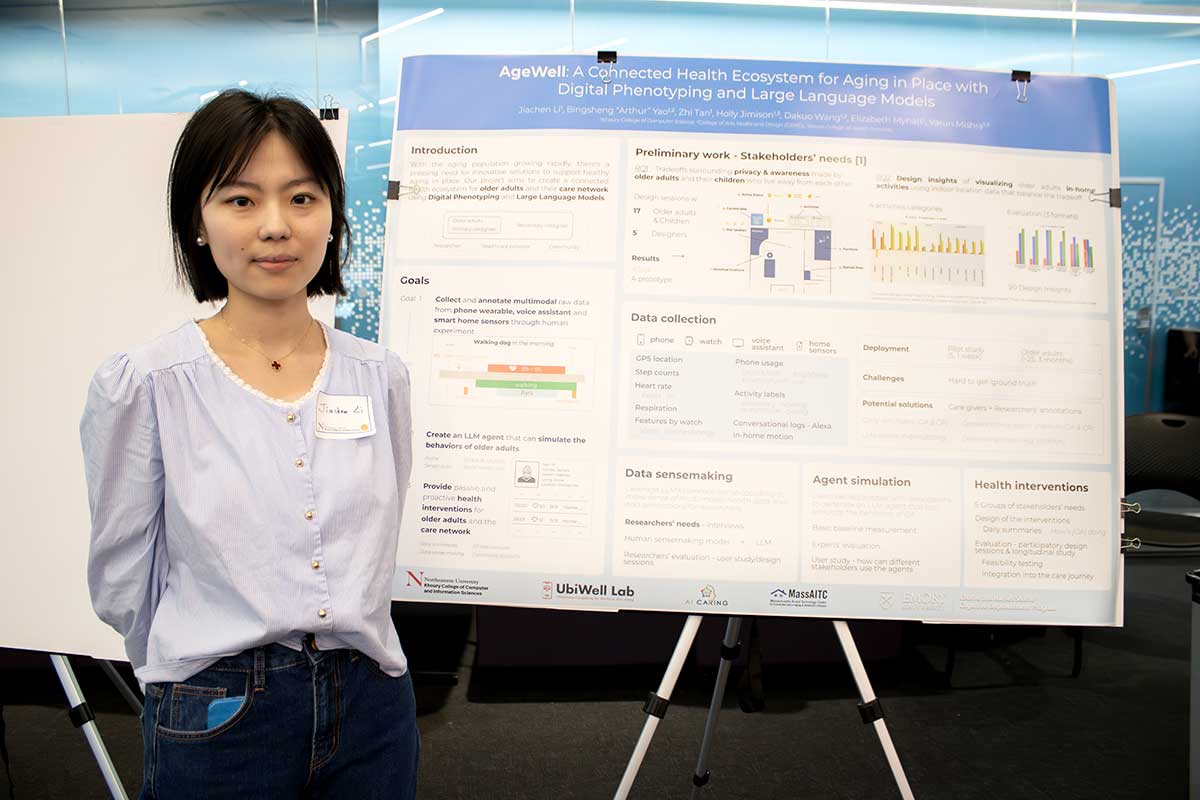
Current project highlights
Toward preventing intimate partner violence by detecting disagreements in SMS communications
Khoury and Bouvé researchers have developed methods to identify early signs of partner violence through detecting disagreements in SMS conversations between romantic partners, particularly focusing on high-risk juvenile justice-involved and child welfare youth. By combining text messaging metadata with advanced NLP techniques, such as text embeddings and sentiment analysis, this approach improves the detection of disagreements. The models, tested on data from at-risk populations, also included large language models (LLMs) to evaluate their adaptability in this task. These approaches hold potential for supporting real-time interventions to prevent conflicts from escalating into intimate partner violence (IPV). (PI: Aarti Sathyanarayana)
Conversational agent to collect cancer patient-reported outcomes
Khoury researchers are developing a smartphone-based system that administers patient-peported outcomes over time to cancer patients at home using a conversational agent on their smartphones, and the ability to display collected data to patients and clinicians using novel data visualizations. The system is being evaluated in clinical trials with two different populations of cancer patients and is supported by the National Cancer Institute, and in collaboration with Tufts Medical Center and the University of Chicago. (PI: Timothy Bickmore)
Rejection sensitivity and puberty in mental health vulnerability to social media experiences in early adolescent girls
Preteen girls are experiencing unprecedented rates of depression and suicidal thoughts; understanding social dynamics that arise in preteen girls’ social media use, including the temporal unfolding of rejection, is critical to uncovering mechanisms of mental health susceptibility to social media experiences at this pivotal developmental stage. In this study, Khoury researchers are deploying uEMA, a novel smartwatch-based data collection system developed at Northeastern, to measure behavior and possibly inform the development of novel interventions and media guidelines aimed at reducing the negative impacts of social media engagement on mental health in preteen girls. (PI: Stephen Intille)
mHealth-based just-in-time adaptive intervention to improve physical activity levels of individuals with spinal cord injury
The lack of regular physical activity in over 290,000 individuals with spinal cord injury (SCI) in the US is an ongoing health crisis. This NIH-funded project is studying the integration of a just-in-time-adaptive intervention strategy developed on smartwatches at Northeastern with a web-based physical activity intervention program for individuals with SCI in the community. (PI: Stephen Intille)
Connect+
The Connect+ project explores how technology can be used to help students connect with others, combatting what has been called a global epidemic of loneliness.
Recent research publications
Adaptive thresholding increases sensitivity to detect changes in the rate of skin conductance responses to psychologically arousing stimuli in both laboratory and ambulatory settings in International Journal of Psychophysiology (International Journal of Psychophysiology, 2024)
Authors: Ian R. Kleckner, Jolie B. Wormwood, Rebecca M. Jones, Eva Culakova, Lisa Feldman Barrett, Catherine Lord, Karen S. Quigley, Matthew S. Goodwin
Khoury researchers have developed a new method for measuring skin conductance responses (SCRs), a key tool for measuring the body’s involuntary reaction to emotional experiences that is used in fields such as neuroscience, psychology, and marketing. Called “adaptive thresholding,” this method improves the accuracy of detecting emotional responses by adjusting the threshold for identifying SCRs based on individual differences. This could help researchers better understand emotional reactions in various settings, from laboratory experiments to real-world situations.
HeartView: An extensible, open-source, web-based signal quality assessment pipeline for ambulatory cardiovascular data (presented at Pervasive Computing Technologies for Healthcare, 2024)
Authors: Natasha Yamane, Varun Mishra, Matthew S. Goodwin
Wearable heart sensor technology can be a great benefit in collecting important health data in a range of settings, but unfortunately the fact that users are in motion brings a risk of errors in the tracking. Khoury scientists are investigating how to assess–and potentially improve–these sensors’ data.
Investigating User Perceptions of Collaborative Agenda Setting in Virtual Health Counseling Session
Authors: Mina Fallah, Farnaz Nouraei, Hye Sun Yun, Timothy Bickmore
Khoury researchers are exploring the effectiveness of collaborative agenda-setting in virtual health counseling. Investigators learned that although any type of agenda-setting improved care, participants strongly preferred a more collaborative approach giving patients greater control over the counseling session topics. This research shows the value of bringing patient-centered care approaches, commonly used in in-person contexts, to virtual counseling and suggests that increased user involvement can enhance the counseling experience.
Wearable Biosensing to Predict Imminent Aggressive Behavior in Psychiatric Inpatient Youths with Autism (JAMA Network Open, 2023)
Authors: Tales Imbiriba, Ahmet Demirkaya, Ashutosh, Singh, Deniz Erdogmus, Matthew Goodwin
Khoury researchers are demonstrating that wearable biosensing and machine learning may hold promise for identifying objective indicators of impending aggressive behaviors in youths with autism who are psychiatric inpatients. Further research is exploring clinical implications and the potential for personalized interventions.
Related labs and groups
Faculty members
-

Timothy W. Bickmore
Timothy Bickmore is a professor at Khoury College and the director of the Relational Agents Group. He develops and evaluates computer agents that emulate face-to-face interactions between health providers and patients, with human–computer interaction, natural language processing, and animation playing a role.
-

Kevin Fu
Kevin Fu is a professor at Khoury College and the College of Engineering, and founder and director of the Archimedes Center for Health Care and Medical Device Cybersecurity. He strives to understand and improve the security of embedded systems and devices, particularly in health care.
-

Matthew Goodwin
Matthew Goodwin is a professor at Khoury College, jointly appointed with the Bouvé College of Health Sciences. He works with people on the autism spectrum to develop and evaluate behavioral assessment and intervention technologies, enabling caregivers to more capably and compassionately assist their loved ones.
-

Stephen Intille
Stephen Intille is a professor at Khoury College, jointly appointed with the Bouvé College of Health Sciences. Using ideas from ubiquitous computing, user-interface design, pattern recognition, behavioral science, and preventative medicine, he develops technologies that measure and motivate health-related behaviors.
-

Holly Jimison
Holly B. Jimison is a research professor jointly appointed between Khoury College and the Bouvé College of Health Sciences, and the director of the Consortium on Technology for Proactive Care at Northeastern University. Her research contributions exploring technology for successful aging and scalable remote care for older adults have earned her a position as a fellow of the American College of Medical Informatics.
-

Varun Mishra
Varun Mishra is an assistant professor at Khoury College, jointly appointed with the Bouvé College of Health Sciences. His research leverages ubiquitous technologies like smartphones and wearables to enable mental and behavioral health interventions.
-
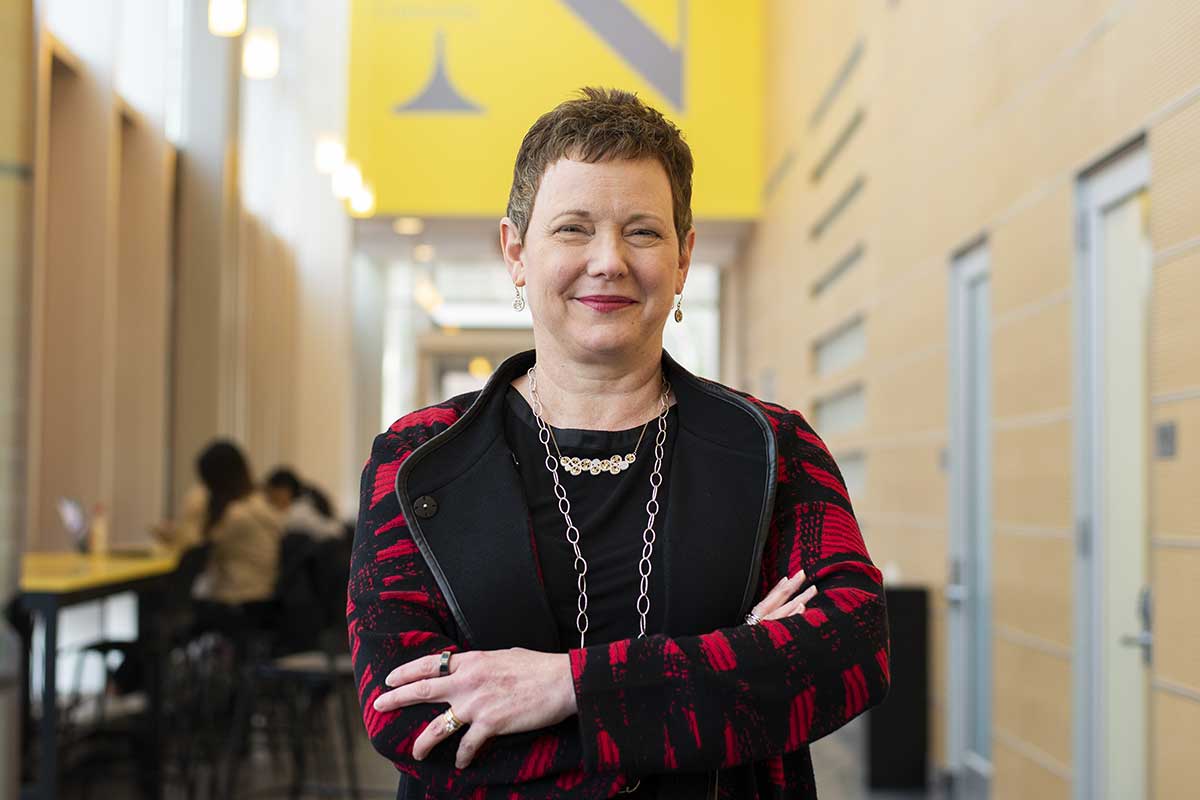
Elizabeth Mynatt
Elizabeth Mynatt is the Dean of Khoury College of Computer Sciences. She joined Northeastern University in January 2022 after a 23-year career at Georgia Institute of Technology (Georgia Tech), where she most recently served as Regents’ and Distinguished Professor in the College of Computing and executive director of the Institute of People and Technology.
-

Misha Pavel
Misha Pavel is a research professor, jointly appointed between Khoury College and the Bouvé College of Health Sciences. He researches behavioral informatics with a focus on multi-scale computational modeling of behaviors and their control, which can be applied to everything from elder care to the augmentation of human performance.
-

Herman Saksono
Herman Saksono is an assistant professor at Khoury College, jointly appointed with the Bouvé College of Health Sciences. His research on human–computer interaction and digital health equity aims to encourage positive behaviors and catalyze social interactions around health, namely through a trio of health apps he designed and developed.
-

Aarti Sathyanarayana
Aarti Sathyanarayana is an assistant professor at Khoury College, jointly appointed with the Bouvé College of Health Sciences. Her research leverages signal processing, machine learning algorithms, digital phenotyping, and biomarker discovery to improve human health and performance.
-

Dakuo Wang
Dakuo Wang is an associate professor at Khoury College. He is also an ACM Distinguished Speaker and gives talks around the world on his research into human-centered AI (HCAI) systems.
